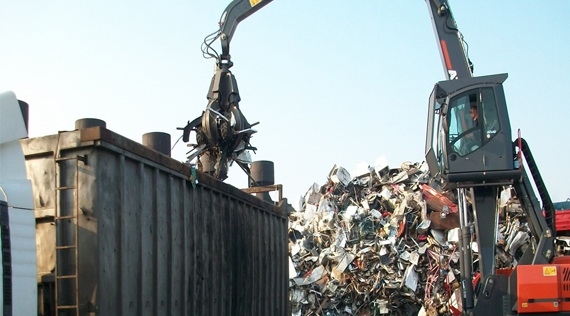
SEATTLE (Scrap Monster): For as “green” as California is, little attention is actually paid to the state’s recycling programs and associated policies that can make or break environmentally conscious businesses that do their best to operate under California’s complex regulatory structure.
For instance, California’s largest recycling business, rePlanet, announced it has closed down its remaining 284 recycling centers throughout the state because of rising operating costs, reduced state fees, and the depressed pricing of recyclable materials. All the jobs provided by re-Planet are now gone.
However, the state has an opportunity to salvage what remains of its metal recycling programs.
For more than 50 years, California’s scrap metal recycling operations have run smoothly. Throughout California, scrap metal recyclers have protected the environment and landfills by efficiently extracting a wide range of valuable metals from massive mountains of shredded cars, refrigerators, washing machines and innumerable consumer products containing aluminum, steel, iron, copper and other metals.
These metals are shipped to China and other foreign markets where they are melted down and reused in the manufacturing of new products – the process conserves natural resources and reduces the need for mining raw materials.
Now, California’s Department of Toxic Substances Control (DTSC) wants to alter this efficient program with shortsighted new requirements that would kill off this industry by adding significant permitting and other regulatory requirements that are simply not necessary. The department is relying on a draft non-peer-reviewed report to substantiate its dubious claims that shredded scrap metal is harmful toxic waste.
Here are just a few of the glaring flaws with the report and DTSC’s findings: 1) The report mistakenly assumes that all phases of the metal shredding and recovery process constitute hazardous waste management. DTSC offers no scientific evidence to support its contentions.
2) DTSC conveniently ignores the fact that multiple agencies provide ample oversight and permitting of metal shredding and recycling facilities, including local fire departments, air quality districts and regional water boards and asserts that they can do a better job.
3) The report fails to recognize the many incremental steps in the metal shredding and metal recovery process are simply refinements and repeated extraction of various metals. Extraction of metal from the metal shredder aggregate is not hazardous waste treatment. It is only at the end of the process that the discarded “residue” is considered hazardous waste.
Furthermore, shredding cars and appliances is the only way to efficiently recycle the different types of metals in cars or appliances – shredding is simply a method of reducing the car or appliance to many smaller pieces so that different metals can be recovered. The metal recovery from the metal shredding processes uses sophisticated magnets and sensors to reduce or eliminate any negative impacts to the environment.
Without a change in course to acknowledge the aforementioned facts, hundreds of longstanding large and small family businesses will be impacted because the shredders will shut down because they will not be able to afford the permits that should not apply to them. The small businesses that sell to the shredders they will not have places to recycle their scrap metal. We’ve seen how this story goes.
Failure to address this problem will also result in a massive ripple effect that will translate into lost jobs, harm local economies and dry up a vital environmental and community service offered by these companies.
Courtesy: www.sacobserver.com
| Copper Scrap View All | |
| Alternator | 0.32 (0.01) |
| #1 Copper Bare Bright | 3.77 (0.07) |
| Aluminum Scrap View All | |
| 356 Aluminum Wheels (Clean) | 0.73 (0.02) |
| 6061 Extrusions | 0.64 (0.02) |
| Steel Scrap View All | |
| #1 Bundle | 475.00 (0) |
| #1 Busheling | 495.00 (0) |
| Electronics Scrap View All | |